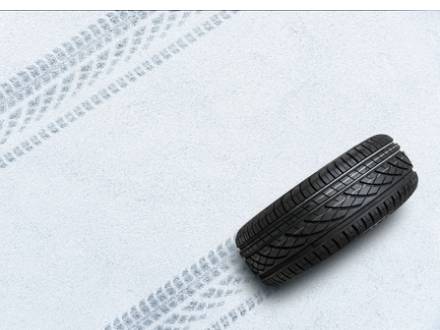Request a Free Consultation | No Upfront FeesSe Habla Español
970-225-2190 |
1-800-664-3151
Do Your Tires Comply With Colorado’s Traction Law?
 October typically ushers the season’s first snowfall into Colorado, with the chance of wintry precipitation remaining until spring. Steep inclines in the state make driving hazardous at any time, particularly during inclement weather. Traveling on slippery roads without the proper tires significantly increases the chances of motor vehicle collisions.
October typically ushers the season’s first snowfall into Colorado, with the chance of wintry precipitation remaining until spring. Steep inclines in the state make driving hazardous at any time, particularly during inclement weather. Traveling on slippery roads without the proper tires significantly increases the chances of motor vehicle collisions.
Are your tires rated for Colorado’s winter months? Do you need chains to drive safely? Your Fort Collins, CO lawyer from Hoggatt Law Office, P.C. reminds you to check your tires and ensure they are compliant with Colorado’s Traction Law to stay safer.
What Is the Colorado Traction Law?
To promote roadway safety, the State of Colorado activates Passenger Vehicle Traction and Chain Laws when winter weather threatens safe travel. When traveling at 60 mph on snowy pavement, passenger cars need at least 800 feet to stop when using summer-rated tires. At the same speed, all-season tires reduce that distance to 668 feet, while you only need 310 feet to stop with winter tires.
When these laws are in effect, motorists in the state must have one of these:
- 3/16" tire tread depth and an AWD or 4WD vehicle
- Winter tires with 3/16" tread depth
- Mud and snow tires with 3/16" tread depth
- All-weather tires with 3/16" tread depth
- Chains or other approved alternative traction devices
A Traction Law will typically go into effect first, with a Chain Law being the final step before road closures. Commercial vehicles have separate rules to follow, but everyone on Colorado state roads must comply with these laws or risk facing penalties if they cause collisions or traffic delays.
With winter conditions almost upon Colorado residents, now is the time to ensure that your tires have at least the minimum tread depth of 3/16". Your safety is paramount, but you also protect your opportunity for compensation if you are involved in an accident.
What Kinds of Car Accidents Happen on Snowy Roads?
Regardless of how good your tires are, snow, ice, and slush on roads can cause cars to slide or skid. Braking becomes problematic, as it can also cause drivers to lose control of their vehicles. Some negligent driving behaviors increase the likelihood of collisions, such as:
- Distracted driving
- Driving too fast for the conditions
- Tailgating
- Reckless or aggressive driving
- Failing to yield the right of way
When negligent behaviors contribute to causing a collision that injures you, you may be entitled to compensation. Injured victims often recover damages for their eligible losses, including medical expenses, lost wages, property damage, pain and suffering, and other adverse impacts on their quality of life. When you work with Hoggatt Law Office, P.C., we will investigate your crash, determine liability, and help you pursue the highest available amount of compensation.
Call Our Dedicated Fort Collins, CO Car Accident Lawyer
At Hoggatt Law Office, P.C., we care about our clients and want you to be safe. However, we stand ready to help if you are injured due to another motorist’s negligence. Call us at 970-225-2190 for your free consultation with our determined Larimer County, CO motor vehicle collision attorney. Se Habla Espanol.

970-225-2190 | 1-800-664-3151
1403 W. 29th St.,
Loveland, Colorado 80538
Greeley:
3835 W. 10th Street, Unit 100,
Greeley, Colorado 80634|
970-460-2220
Longmont:
353 Main Street, Suite A,
Longmont, Colorado 80501|
720-575-0509
Boulder:
4450 Arapahoe Avenue, Suite 100,
Boulder, Colorado 80303|
303-997-2018
Ft. Collins:
123 North College Ave., Suite 160,
Fort Collins, CO 80524|
970-225-2190
Cheyenne:
109 E. 17th St., Suite #6148,
Cheyenne, WY 82001|
307-227-4051 (By Appointment Only)















